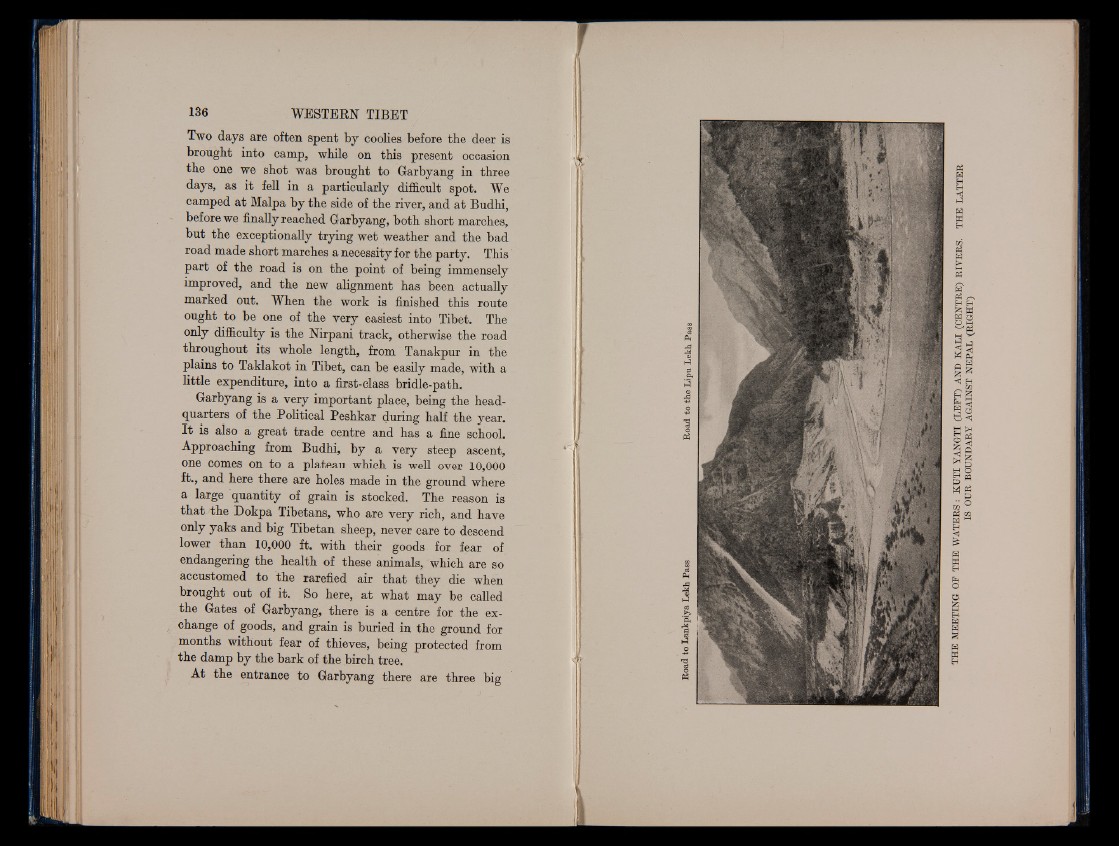
Two days are often spent by coolies before the deer is
brought into camp, while on this present occasion
the one we shot was brought to Garbyang in three
days, as it fell in a particularly difficult spot. We
camped at Malpa by the side of the river, and at Budhi,
before we finally reached Garbyang, both short marches,
but the exceptionally trying wet weather and the bad
road made short marches a necessity for the party. This
part of the road is on the point of being immensely
improved, and the new alignment has been actually
marked out. When the work is finished this route
ought to be one of the very easiest into Tibet. The
only difficulty is the Nirpani track, otherwise the road
throughout its whole length, from Tanakpur in the
plains to Taklakot in Tibet, can be easily made, with a
little expenditure, into a first-class bridle-path.
Garbyang is a very important place, being the headquarters
of the Political Peshkar during half the year.
I t is also a great trade centre and has a fine school.
Approaching from Budhi, by a very steep ascent,
one comes on to a plateau which is well over 10,000
ft., and here there are holes made in the ground where
a large quantity of grain is stocked. The reason is
that the Dokpa Tibetans, who are very rich, and have
only yaks and big Tibetan sheep, never care to descend
lower than 10,000 ft. with their goods for fear of
endangering the health of these animals, which are so
accustomed to the rarefied air that they die when
brought out of it. So here, at what may be called
the Gates of Garbyang, there is a centre for the ex-
change of goods, and grain is buried in the ground for
months without fear of thieves, being protected from
the damp by the bark of the birch tree.
At the entrance to Garbyang there are three big
g
03 ^
H Eh
£ H
to